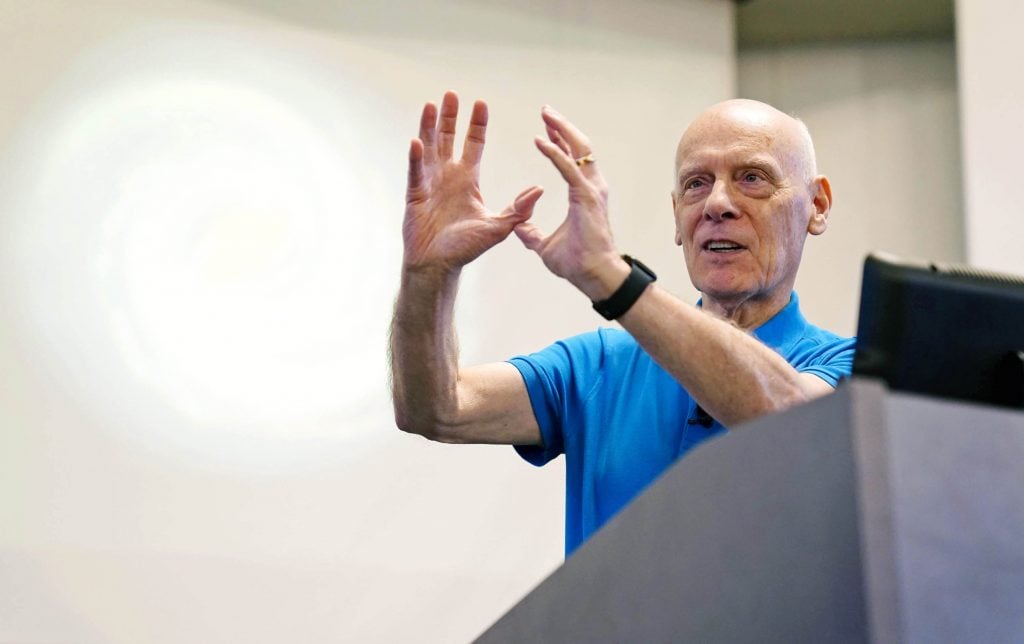
Photos by Ralph Freso / Slideshow
Astrophysicist-turned-evangelical minister Dr. Hugh Ross believes science and Christianity mix instead of contradict.
And for about two hours, the prolific author of such books as "Designed to the Core" and "Improbable Planet" elaborated on his beliefs, research papers and opposing views during the Grand Canyon University One Foundation Speaker Series on Monday at Sunset Auditorium.
The GCU community asked deep questions and shared thoughts on Earth's future as they engaged with Ross in his talk, “Are We Alone in the Universe?”
Throughout the session, Ross, founder of Reasons to Believe, a think tank dedicated to communicating the compatibility of science and the Christian faith, stayed true to his core values and ministry goal, stemming from Peter 3:15-16:
“Always be prepared to give an answer to everyone who asks you to give the reason for the hope that you have. But do this with gentleness and respect, keeping a clear conscience.”
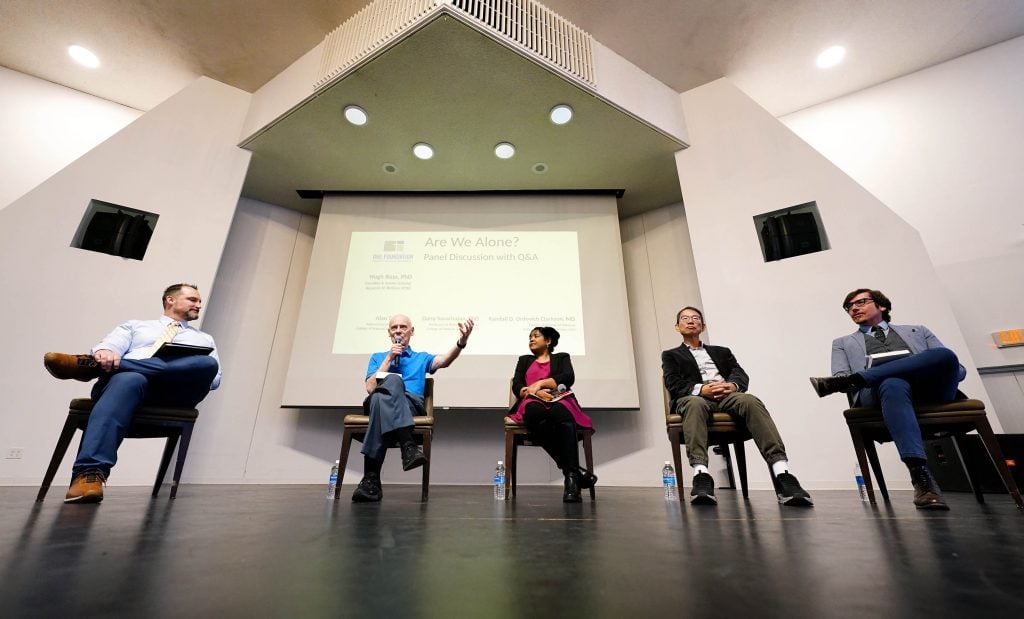
GCU's colleges of Natural Sciences and Theology hosted the talk, with College of Theology Dean Dr. Jason Hiles moderating and Drs. Daisy Savarirajan, Alan Tai and Randall D. Ordovich Clarkson of the College of Natural Sciences participating in a panel discussion.
Ross said God has given us two trustworthy and valuable books – the book of scripture (the Bible) and the book of nature.
However, “We’re sinners, and because we’re sinners, we can misinterpret the book of scripture, and we can misinterpret the book of nature,” said Ross, a former professor at Caltech and progressive Creationist who has been featured on Focus on the Family and in Christianity Today, the Los Angeles Times, The Washington Post and Fox News.
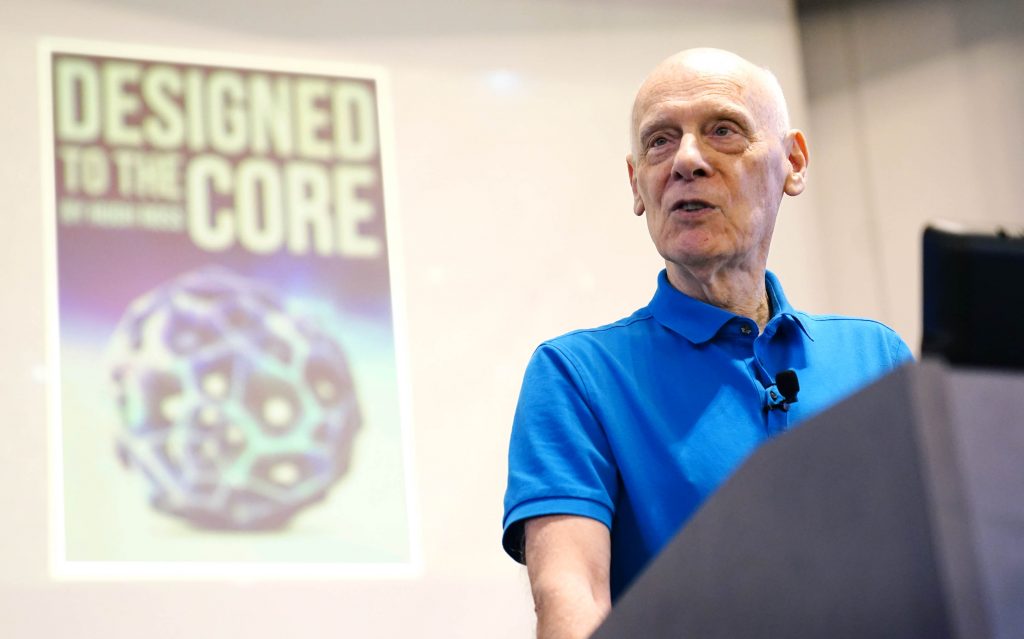
Ross believes theology can contradict science. After all, both undergo human interpretation, and they each involve incomplete human knowledge.
“But there’s no possibility that there will be a contradiction between the book of scripture and the book of nature,” said Ross, who added that there are people within the Christian community who contend that nature has fallen.
Ross pointed to Genesis 3:17, in which God cursed the ground because Adam ignored His order to not eat from the tree.
“It wasn’t cursed because God changed the physics,” Ross said. “It’s because of sinful humans working the ground.”
Ross added that God told Adam he had to work harder because of his sin for ruining the ground he was working on.
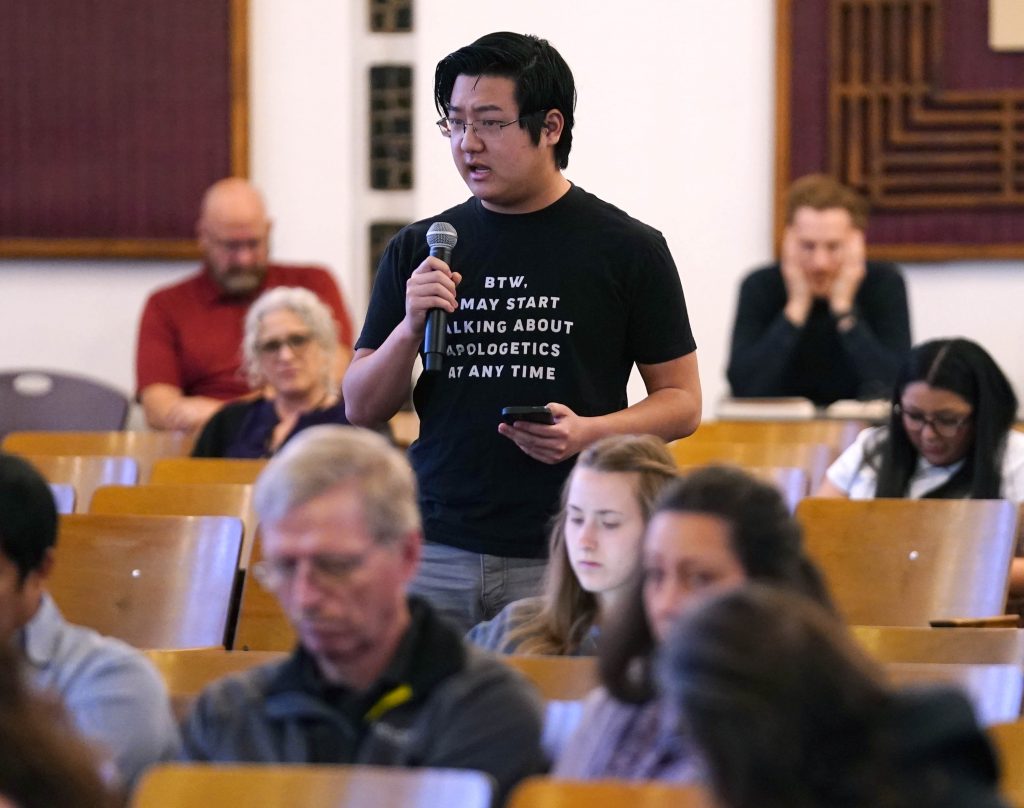
“And it’s not going to be productive for you as it was when you were free of sin.”
Ross earned his doctorate from the University of Toronto, where his study of cosmology swayed him toward the belief of God as the Creator.
He cited Revelation 21, in which God will replace the Earth and universe with a new heaven and Earth, in which the ultimate universe will have no sin, no decay, no debt or maintenance.
“I won’t have to do yardwork in the new creation,” Ross said.
Psalm 104:24 praises God for providing a world with an array of creation, from mountains to oceans and lakes and that all creatures should enjoy life. That prompted Ross to raise the question, “Why did God stop with this one planet?”
He cites the Book of Isaiah, which states that God didn’t create the Earth to be empty but make it habitable to people. Furthermore, according to Ross, the Gospel said that God performed as few miracles as necessary to achieve His purpose of teaching us, presumably about His power, authority and glory.
And given His purpose to create the universe to use it as a theatre to eradicate evil, why would He need more than one planet?
For thousands of years, Christians have debated whether life exists elsewhere in the universe. Ross said the NASA website reports there are more than 40 billion habitable planets in the Milky Way Galaxy, which includes the solar system.
That number was derived from the habitable zone, a region circling a star where planets could possess liquid water.
However, “none of them are like our planets in the solar system,” Ross said. Many astronomers believe that microbes could be found on planets, but “we now know that’s an extremely remote possibility.”
Ross said his peers have focused on water habitable zones where liquid water and life can exist, but there are 12 other known habitable zones.
“So, for a planet to be truly habitable, it must simultaneously reside in all 13 of those zones, Ross said.
“There’s only one planet that we’ve seen reside on those zones.”
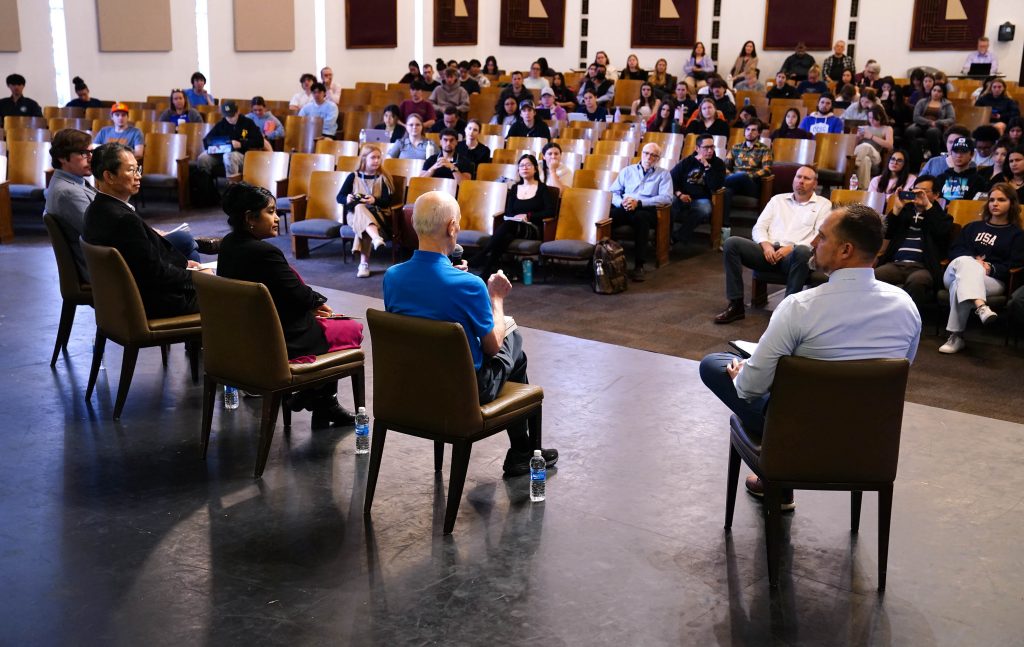
Ross said many of his peers have been searching for an Earth-like planet.
“To this day, the most Earth-like planet we’ve discovered is Venus,” said Ross, who expressed Earth's special place in the universe.
The debate will continue among theologians, Christian scholars and philosophers about life on other planets, Ross said. But, "If life exists elsewhere, God created it.”
GCU News senior writer Mark Gonzales can be reached at [email protected]
***
Related content:
GCU News: Virtues can deflect stress of divided times, guest speaker preaches
GCU News: Audience reflects on what it means to be human at One Foundation event



































































